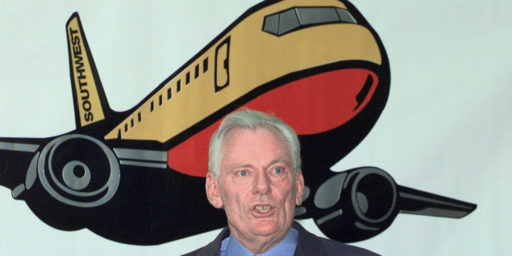Airline Market Shake-Out
It looks like the oversupply of inefficient, poorly managed air carriers may be starting to sort itself out, if three stories in today’s Washington Post are any indication.
Independence Air Will Eliminate Some Flights
In a cost-cutting move, Independence Air plans to eliminate 150 of its 560 daily flights — most in and out of Dulles International Airport — at the end of this month. The financially troubled carrier will continue to offer flights to each of the 38 cities it serves from its Dulles hub but the frequency will be scaled back in many cases, said Rick DeLisi, the airline’s spokesman. Flights to Florida from Charleston, S.C., Greenville-Spartanburg, S.C., and Huntsville, Ala., will be eliminated. “We are better balancing our system-wide capacity with our expectations for customer demand,” DeLisi said. “We are working on maximizing revenue and reducing overall costs.”
The cuts mean Independence will reduce daily service from Dulles to Chicago’s O’Hare International Airport, for example, from 11 daily flights this month to six in February. And it will offer seven, instead of 10, daily flights from Dulles to Pittsburgh.
Since its launch last June, Independence, which primarily uses 50-seat regional jets, has struggled with high fuel prices and stiff competition from larger, more established airlines. Flyi Inc., Independence’s parent, has said it will file for Chapter 11 bankruptcy protection if it cannot renegotiate $83 million in aircraft lease payments, due this month. Flyi has won some concessions from creditors.
Delta to Cut Fares on Most U.S. Flights
In a bid to beat back the growing threat from budget carriers, Delta Air Lines will announce today that it is reducing fares by as much as 50 percent on most of its flights within the continental United States. The move by the nation’s third-largest carrier is expected to ripple through the airline industry as other carriers try to match Delta’s cuts — risking a drop in revenue — or not — risking a loss of passengers to competitors. Northwest Airlines said Delta’s move would be “revenue negative” and would “adversely and significantly affect industry revenues.”
Delta executives argued that customers are demanding lower fares and a simplified fare structure similar to what budget carriers have. “We’ve heard loud and clear from our customers. They did not find our current fare structure easy to use or understand,” said Paul G. Matsen, Delta’s chief marketing officer. Matsen said the Delta move was in response to the rapid growth of the low-cost carriers, especially in the Northeast and Southeast, where Delta has a large presence.
Atlanta-based Delta also is eliminating its Saturday-night-stay requirement but is requiring passengers to stay over at their destinations at least one night. It also is capping its last-minute, one-way fares at $499 for coach seats and $599 for first class.
It may be too little, too late. Capping the last minute fares is a great idea. I’ve never understood the policy, as it creates a huge disincentive for flying right at the point where the value of the seat is about to evaporate entirely; they can’t sell the seat once the plane has taken off.
Meanwhile, the efficient carriers are making their move:
Southwest Plans Service to Pittsburgh – Move Will Put Additional Pressure on US Airways
Southwest Airlines plans to begin service at Pittsburgh International Airport, a source familiar with the plans said today. The move, expected to be announced later today, is the latest blow to US Airways, which is the dominant carrier in Western Pennsylvania even though it drastically reduced its service at Pittsburgh last year.
Southwest generally enters a new market with fares as much as 40 percent to 60 percent lower than existing prices. The airline’s arrival often pressures other carriers to knock prices lower.
Last spring, Southwest began service at Philadelphia International Airport, one of US Airways’ largest hub airports. Since then, US Airways has overhauled its pricing strategy and cut fares by as much as 60 percent at the airport to avoid losing customers.Southwest’s entry into Pittsburgh also is a blow to fledgling Independence Air, which offers discount fares from Dulles International. Southwest flies from Baltimore-International Airport. But the airline may soon initiate service from Washington’s Reagan National Airport.
Excellent news for those of us in the capital region. I’m not willing to endure the drive to Baltimore, let alone one of the worst major airports in the country, to fly SouthWest. I’d go to Reagan.
Update (1-6): As expected, the other carriers are following Delta’s lead.





National is just getting back to pre 9/11 traffic levels. I haven’t flown out of there for a year so can’t say what security lines are like now but I imagine it’s longer then it was back then. After 9/11, National was a pleasure to fly out of compared to the zoo at Dulles and BWI. But if Southwest moves into National (and I don’t really see how many flights or gates they’ll be able to secure since real estate is really limited there), the lines will become phenomenal just like what happened at BWI after they moved in. Problem with Southwest (and I’m one of their fans) is that the hordes inevitably follow their arrival.
I hope Independance Air makes it. I just flew them from Dulles to Providence, and their staff was extremely helpful friendly and efficient.